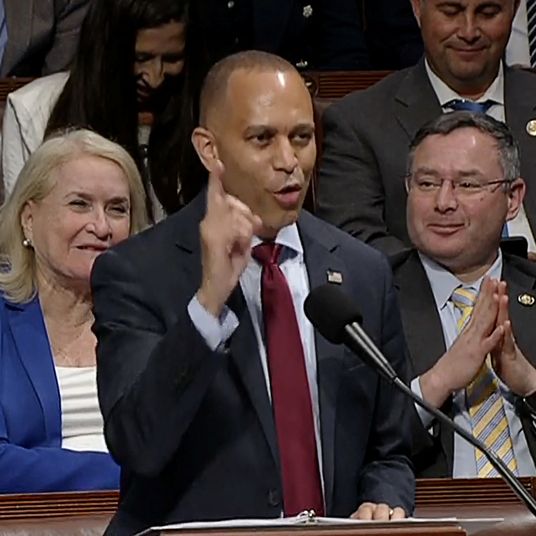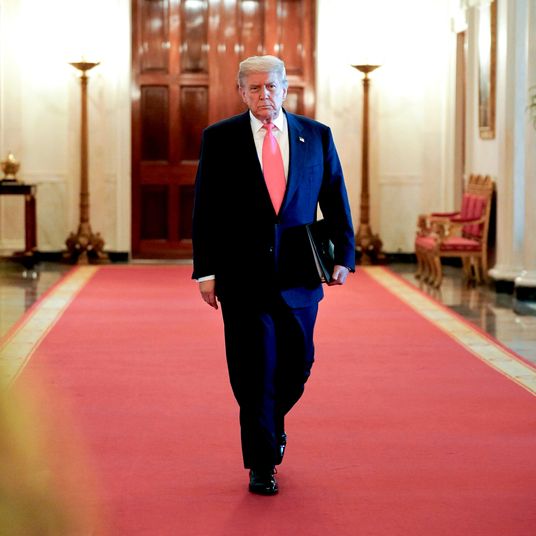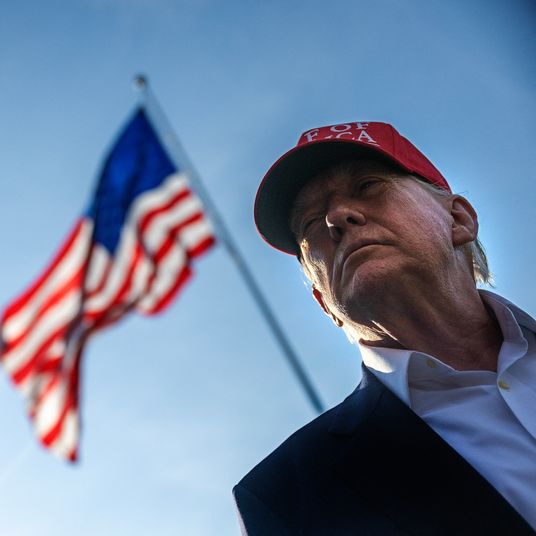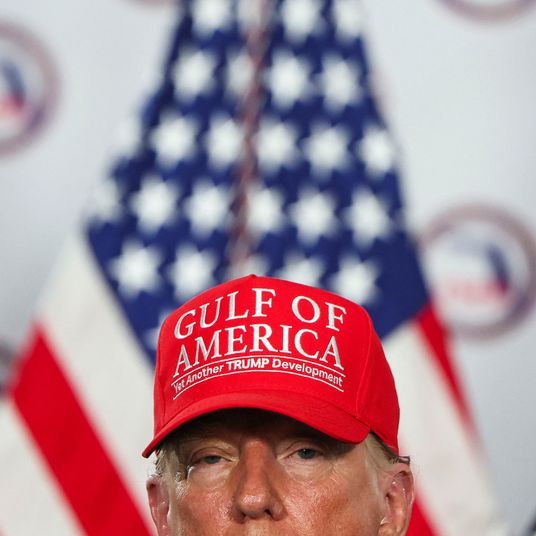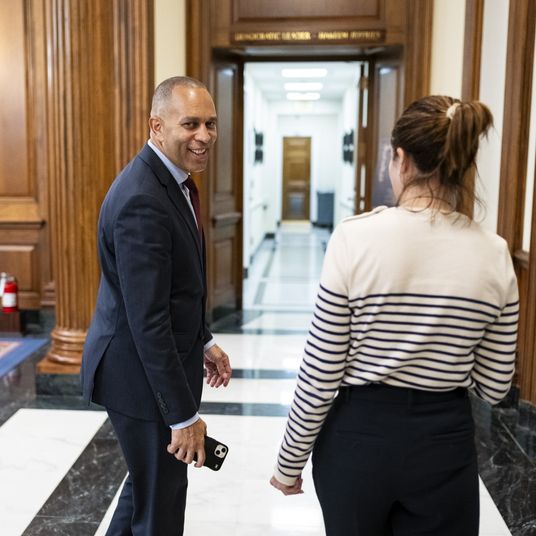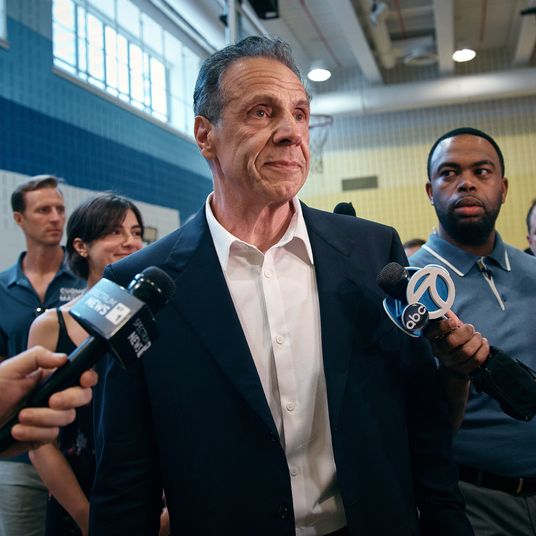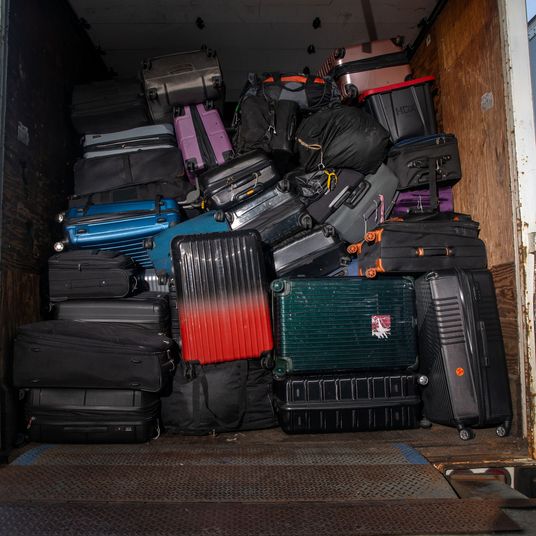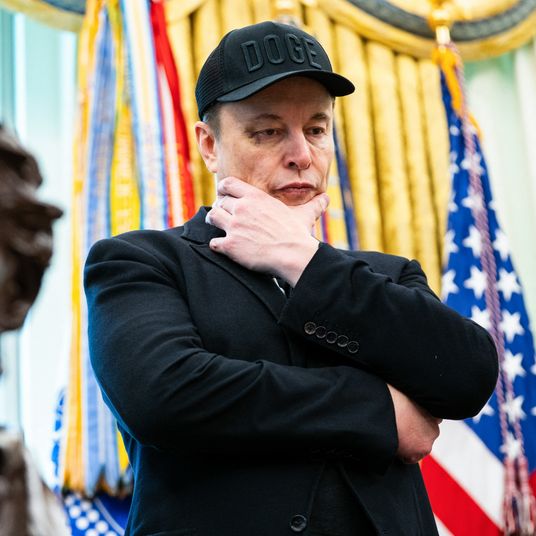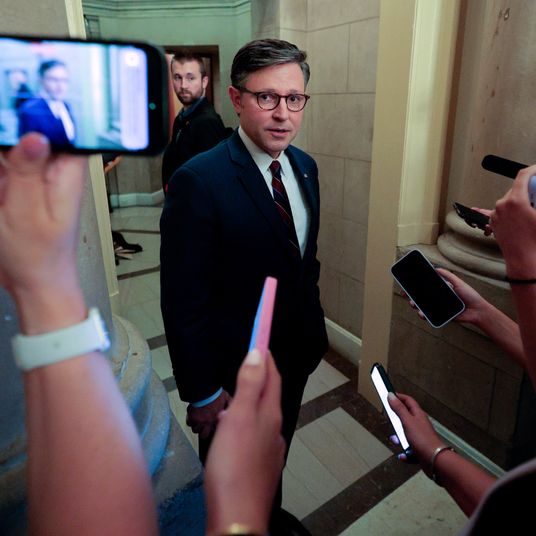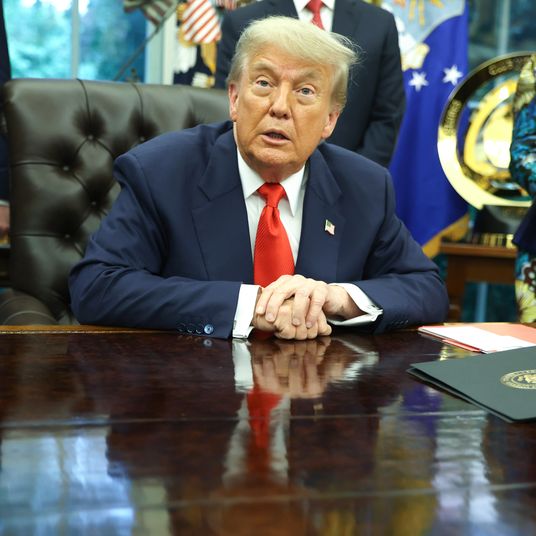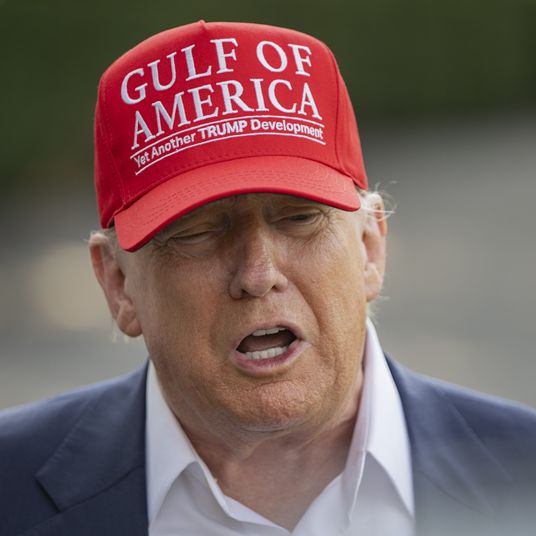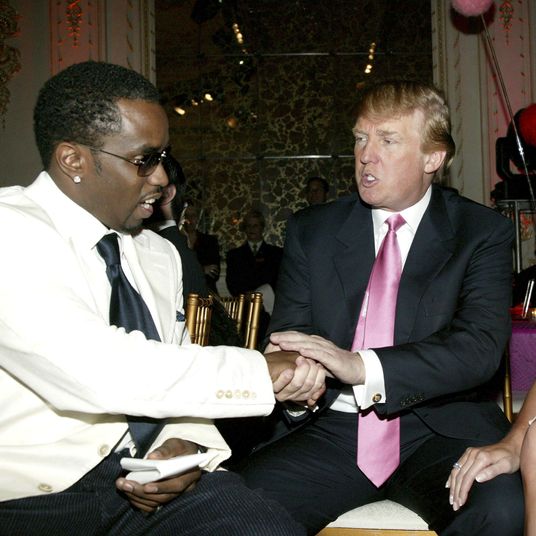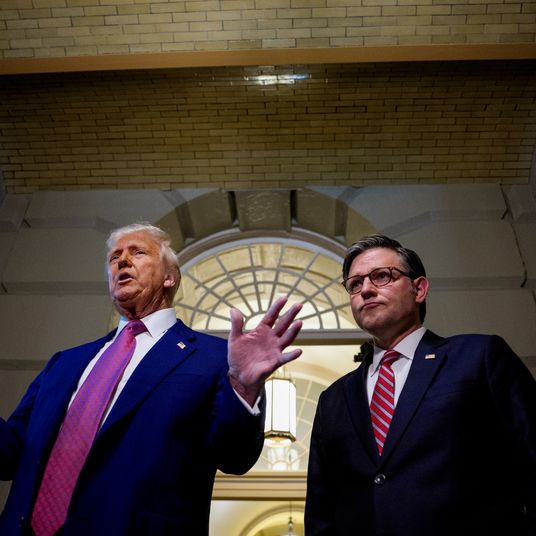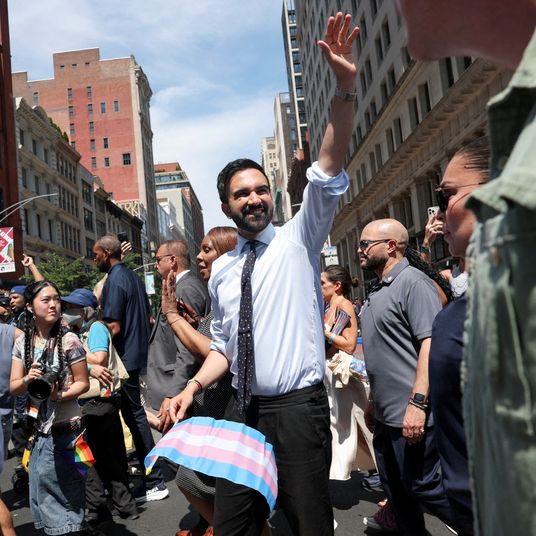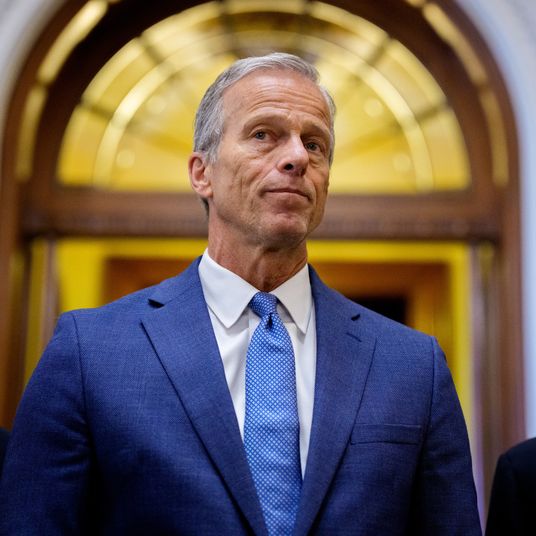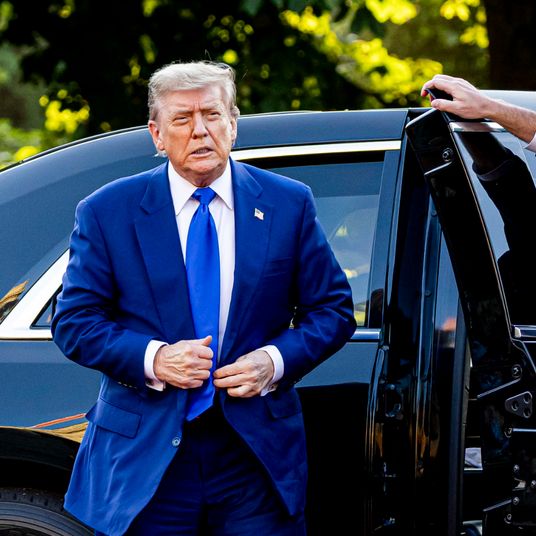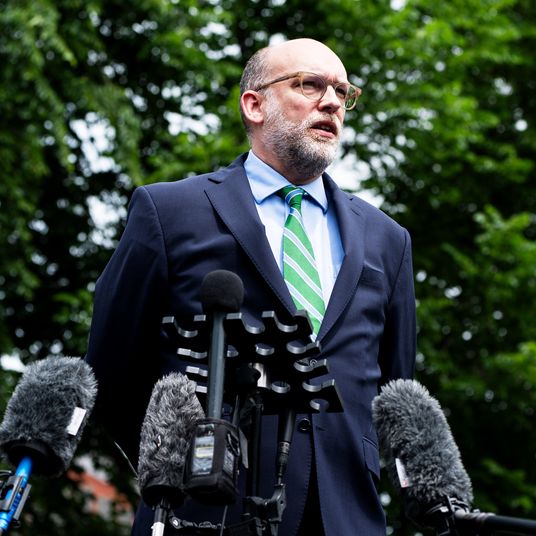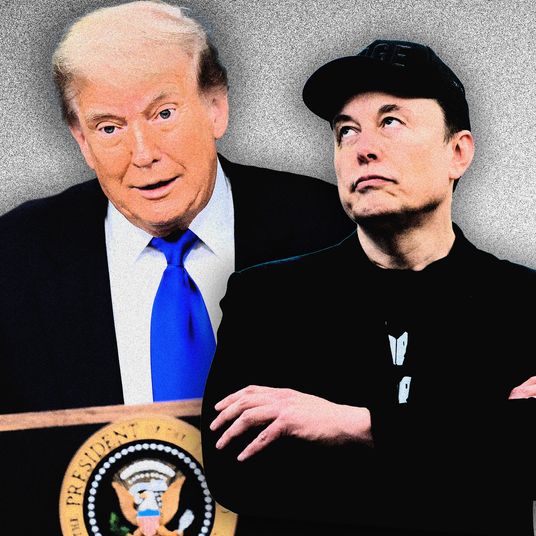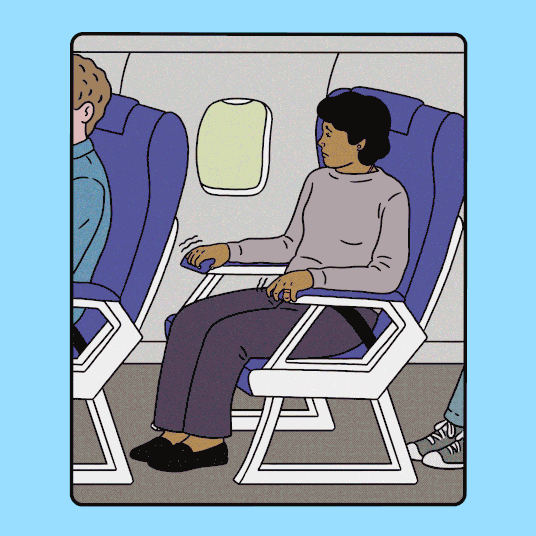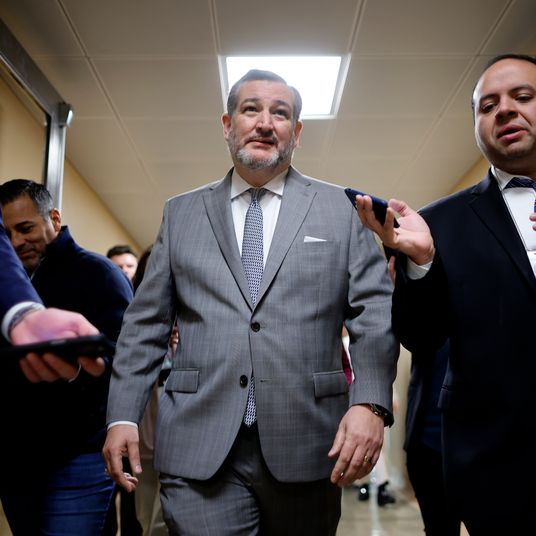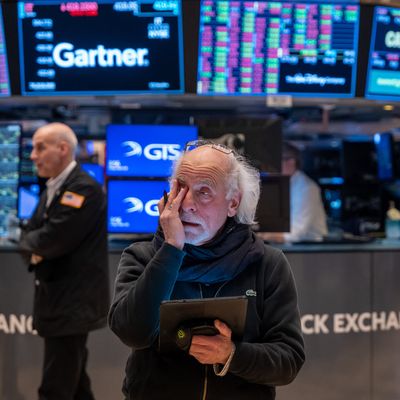
Donald Trump has made tariffs a staple of his second term, levying a flurry of taxes on foes and neighbors alike as an extension of his “America First” mantra. The trade-warring president has signaled even more tariffs on the horizon, promising to institute reciprocal taxes against most of the United States’s trading partners this week on what he’s calling the nation’s “Liberation Day.” But financial institutions are sounding the alarm that Trump’s ever-expanding trade war could have severe repercussions for the national economy and even lead to a recession. Here’s how economic and financial experts are viewing the current moment.
.
Goldman Sachs says there is now a 35 percent chance of recession
One of the nation’s most prominent investment banks is warning its clients that the United States could soon be in the throes of a recession. CNN reports that Goldman Sachs has raised its internal probability metrics to reflect a growing possibility for a recession:
The Wall Street bank warned clients Sunday night that it now sees a 35% chance of a recession in the next 12 months, up from 20% previously. Goldman Sachs also increased its inflation estimate, slashed its 2025 GDP forecast to just 1% and bumped up its year-end unemployment rate outlook by 0.3 percentage points to 4.5%. The bank explained its reasoning in a report, citing, in part, “statements from White House officials indicating greater willingness to tolerate near-term economic weakness in pursuit of their policies.”
.
S&P Global forecasts growth slowdown
In a new report, S&P Global said its GDP growth forecasts have fallen because of “U.S. tariff effects and spillovers from a steeper decline in U.S. sequential growth.” The firm noted that European growth is expected to increase in 2026 despite taking a dip this year, while China remains “stable.”
“The risks to our baseline are firmly on the downside. We are watching the effects on demand from protracted U.S. policy uncertainty,” the report says. “Should these materialize, the result would be a material slowdown in growth.”
.
Tariffs could lead to stagflation — but could have positive affects
Appearing on CNBC’s Squawk Box Tuesday, Mohamed El-Erian, the chief economic officer at Allianz, said that Trump’s tariffs could result in one of two outcomes: either the affected countries quickly agree to rules that would make for a “fairer trading system,” in his words, or those countries institute their own reciprocal tariffs on the United States, which would result in several rounds of tit-for-tat tariffs — and ultimately stagflation.
.
CNBC survey of economists indicates economic growth has hit a new post-COVID low
A CNBC survey that averages forecasts from more than a dozen economists indicates that “policy uncertainty and sweeping new tariffs from the Trump administration are combining to create a stagflationary outlook for the U.S. economy”:
The Rapid Update, averaging forecasts from 14 economists for GDP and inflation, sees first quarter growth registering an anemic 0.3% compared with the 2.3% reported in the fourth quarter of 2024. It would be the weakest growth since 2022 as the economy emerged from the pandemic. Core PCE inflation, meanwhile, the Fed’s preferred inflation indicator, will remain stuck at around 2.9% for most of the year before resuming its decline in the fourth quarter.
.
J.P. Morgan has lowered its GDP estimate too
On March 14, J.P. Morgan announced it had revised its predicted growth estimate for 2025 because of the ongoing tariffs situation and likely retaliatory measures to follow from other trade partners. The firm is now predicting 1.6 percent GDP growth for the year, which is a 0.3 percent decrease from its past estimates, per J.P. Morgan.
“Heightened trade policy uncertainty should weigh on activity growth, particularly for capital spending,” Michael Feroli, J.P. Morgan’s chief U.S. economist, said in a statement. “Plus, tariffs that have already been imposed will create a bump to headline inflation, pushing up consumer prices by 0.2 percentage points. Retaliatory tariffs would also serve to drag on gross export growth.”
.
Mark Zandi at Moody’s Analytics says Trump is providing “fodder for an economic downturn”
Mark Zandi, the chief economist for Moody’s Analytics, wrote on social media that he was raising his odds for a recession to 40 percent from 15 percent at the beginning of 2025. Although he said the overall recession risk is low, he called the most recent economic data “disconcerting” and pointed to the shifting policy from the White House.
“The intensifying trade war and DOGE cuts are behind all this and with last week’s announcement of big tariff increases on vehicle imports and the coming reciprocal tariffs, things are sure to get worse,” he said.
Zandi told ABC News Monday that investors are nervous after Trump made it clear he has no intention of backing down from announcing his planned tariffs for this week. “That’s the fodder for an economic downturn. Obviously, that’s not good for business. That’s not good for profits. That’s not good for stock prices,” Zandi said.
He called Trump’s pending auto tariffs a “big negative” for consumers with car prices likely to rise as a result, but he said automobile dealers will also have to contend with the tax. “Even though the domestic automakers may grab market share — because the tariffs are harder on countries that are exporting to the U.S. — the fact is that we’re going to sell, overall, fewer cars. That means the folks at auto dealerships are going to have less cars to sell, and that’s going to mean less jobs,” he said.
.
Yale’s Budget Lab says auto tariffs will raise new-car prices by an average of $6,400
According the Budget Lab’s analysis, based on the 25 percent auto tariffs Trump announced last week, new-car prices will go up by as much as 31 percent:
Automobile prices rise 13.5% overall on average as a result of the action (see chart below). Edmunds reports that the average price of a new car in the US was roughly $48,000 in 2024 Q3. The tariff effect would therefore be the equivalent of $6,400 added to the price of an average car. Imported models or domestic models with high import content could see increases higher than the average: imported models alone rise in price by 31% according to TBL’s modeling.
The analysis estimates that prices for new domestic cars would go up by 3.2 percent.
.
Wedbush analyst Dan Ives says tariffs “would send the auto industry into pure chaos”
Ives told investors in a research note on Friday that, after consulting auto-industry experts, Wedbush has concluded Trump’s auto tariffs will cause “pure chaos” for the industry and add $5,000 to $15,000 to new-car prices.
“The winner in our view from this tariff is no one,” Ives said:
The concept of this auto tariff in our view would be a back breaker and Armageddon for the auto industry globally and throws the supply chain into pure panic mode … We believe this adds up to $100 billion of costs annually to the auto industry and will essentially get passed directly onto the consumer and clearly erode demand on day one of tariffs.
.
Trump-honored economist Arthur Laffer says auto tariffs could do “irreparable damage” if the United States–Mexico–Canada Agreement is abandoned
Laffer, whom Trump awarded a Presidential Medal of Freedom in 2019, said in an analysis late last week that the president’s tariffs would go against his administration’s stated goals. Per the Associated Press:
“Without this exemption, the proposed tariff risks causing irreparable damage to the industry, contradicting the administration’s goals of strengthening U.S. manufacturing and economic stability,” Laffer writes in the analysis. “A 25% tariff would not only shrink, or possibly eliminate, profit margins for U.S. manufacturers but also weaken their ability to compete with international rivals” …
The analysis says that the per vehicle cost without the USMCA exemption would be $4,711, but that figure would be a lower $2,765 if the exemptions were sustained.
